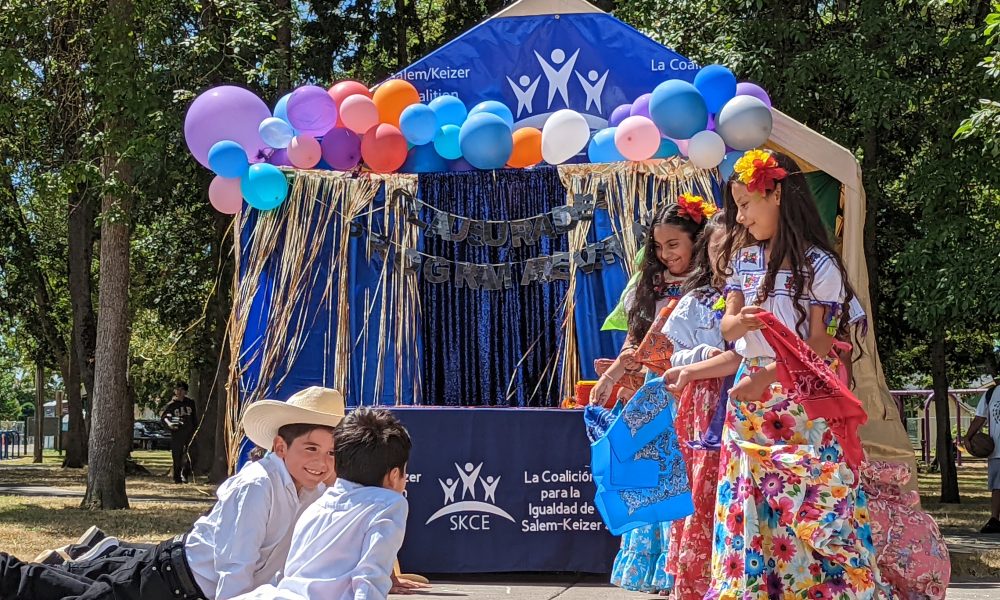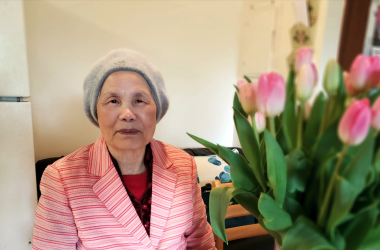Last year, youth in Maupin had the opportunity to join a summer program that brought them on field trips across the state. It was run by South Wasco Youth Programs, a nonprofit serving about 110 students in north central Oregon.
“We’re in a rural, impoverished area, so to do that was pretty amazing,”Director Amber Anderson said.
Anderson was able to pay for those trips last year through a $45,000 summer learning grant from the state.
This year, she got nothing.
“I’m really upset, I’m not going to lie,” she said about having to cut field trips for kids.
The reason: a new requirement from the state that grant recipients have additional insurance coverage for sexual abuse and molestation claims.
In 2021, the State Legislature approved $40 million to go toward summer learning programs offered by community-based groups. More than 500 took advantage of the money. This year, the state approved nearly $48 million for the grants, but because of the insurance requirement 376 groups were able to receive grants this year, a 25% decline.
The insurance requirement
During the summer of 2021, the Oregon Community Foundation was in charge of distributing grants. It required grantees to have insurance, but did not require they specify the different types of coverage. The foundation is a nonprofit unaffiliated with any state or government agencies, and it issued the grants as donations.
This year, the Oregon Association of Education Service Districts was in charge of awarding the grants to community groups. Because it is a quasi-government agency – its fiscal agent is the Clackamas Education Service District, a taxpayer-funded public entity – the Oregon Department of Justice had to review the application process. The department found that the additional sexual abuse and molestation insurance would be required for community groups as it is for schools.
In March, Jennifer Brenden, program administrator at the Oregon Association of Education Service Districts and the Oregon Department of Education, learned the additional coverage would be required and tried to do everything possible to get it changed.
To have this process play out in the middle of summer was unnecessary. It’s not insurance that’s necessary for our operations, it’s insurance that’s necessary to meet a requirement that’s outdated and misplaced by the Legislature.
– Matt Boulay, executive director, Salem Art Association
Oregon school districts and many large nonprofit community groups such as the YMCA and Boys & Girls Club already have coverage for sexual misconduct and molestation claims, but small community groups and nonprofits have not needed it to operate. It can be difficult to secure and be prohibitively expensive, Brenden said.
“The Department of Education worked really hard to figure out workarounds and how to provide support. Together we tried everything, turned every stone,” she said.
In the end, getting rid of the requirement would involve changing state law, and there was nothing that could be done fast enough.
Many groups learned in the middle of filling out grant applications in June that they would no longer be eligible. It disqualified the South Wasco Youth Programs.
“I run a very small nonprofit,”Anderson said. “We bring in maybe $95,000 a year. So to buy $10,000 worth of insurance? That’s not even reasonable.”
A few weeks later, the education service districts’ association announced it was able to allow groups to use grant money to pay for the insurance. This set Anderson on a quest to find insurance.
“By the time I then submitted the application all the money was gone,” she said.
Brenden said groups were emailing and calling asking her what had happened.
“There were some real tough conversations after that,” she said. “It’s a limited pot of dollars. It’s not available forever. We went back to ODE and asked: ‘Are there any more dollars for these organizations?’ And we were told there wasn’t,” she said.
Matt Boulay, executive director of the Salem Art Association, was able to secure the extra insurance for his group by mid-July and finish submitting his grant application in time to get funding. But because it all came through so late, the group will use some of the grant money to continue funding activities through the rest of this year.
“To have this process play out in the middle of summer was unnecessary,” Boulay said. “It’s not insurance that’s necessary for our operations, it’s insurance that’s necessary to meet a requirement that’s outdated and misplaced by the Legislature.”
Fewer groups got more money

Average grants increased from $75,000 in 2021 to $150,000 this year because fewer groups received money. In Multnomah County, 165 groups received grants last year. This year, 96 did. But the total amount of the awards for the county was nearly $1.2 million higher this year than last year.
Woodburn-based nonprofit CAPACES received $385,000, almost double its 2021 award. The additional money allowed the group to offer programs in Salem, Turner and the MacLaren Youth Correctional Facility, as well as Woodburn, said Executive Director Jaime Arredondo.
CAPACES ran a youth job training academy, took students on field trips to the coast and hired parents and community members to teach culturally specific programming about cuisine, language and indigenous medicine.
“That’s kind of an added value, giving the state a workforce of people that can provide back to their communities,” Arredondo said.
Larger grants also helped cover the increased costs of programs due to inflation for many community groups, Brenden said.
“When we looked at cost inflation, transportation alone was four times more expensive than it was last year,” Brenden said.
Next summer
Brenden said the Education Service District’s association would consider being the grant distributor again next year, but she would hire more staff and get started earlier.
She said the state should consider setting aside additional funds to help community-based groups pay for the insurance required by the state.
Because grantees were not required to report how much of their allotted grant budget went to paying for the added insurance, Brenden is unsure how much of the state’s total summer learning funding went to covering insurance costs.
Brenden said the state should also require the insurance industry to make it easier for small groups to get the sexual abuse and molestation claims coverage.
“If that is what nonprofits are required to do now to do business, then we need to tell the industry this should be the standard.”
She said the state needs to commit to long-term funding of summer programs not to decide on a year-by-year basis as they have the last two years.
“They need to make a decision to make it sustainable,” she said “And tell them this is going to happen for five years in a row. Community-based organizations right now can’t build programs.”
Despite attempts to find a legislative fix, state Sen. Michael Dembrow, D-Portland, said it’s proving to be difficult. Dembrow championed the summer learning money and asked the Legislative Policy and Research Office to look into what could be done to change the rules around the insurance requirement.
“I don’t think there’s anything we can do to eliminate their need for insurance, but we will make it clear that their grant can cover the cost,” Dembrow said in a text. The Senate Education Committee will begin planning discussions in October to try to get issues resolved before next year’s legislative session. Dembrow said the goal will be to get summer learning grants funded for the next two summers to provide some consistency for community organizations that want to continue providing robust programming.
“The goal will be to get next year’s funding nailed down early in the legislative session so that they can plan with certainty earlier than in the past,” he said.
Oregon Capital Chronicle is part of States Newsroom, a network of news bureaus supported by grants and a coalition of donors as a 501c(3) public charity. Oregon Capital Chronicle maintains editorial independence. Contact Editor Lynne Terry for questions: [email protected]. Follow Oregon Capital Chronicle on Facebook and Twitter.
STORY TIP OR IDEA? Send an email to Salem Reporter’s news team: [email protected].

Alex Baumhardt has been a national radio producer focusing on education for American Public Media since 2017. She has reported from the Arctic to the Antarctic for national and international media, and from Minnesota and Oregon for The Washington Post. She previously worked in Iceland and Qatar and was a Fulbright scholar in Spain where she earned a master's degree in digital media. She's been a kayaking guide in Alaska, farmed on four continents and worked the night shift at several bakeries to support her reporting along the way.









